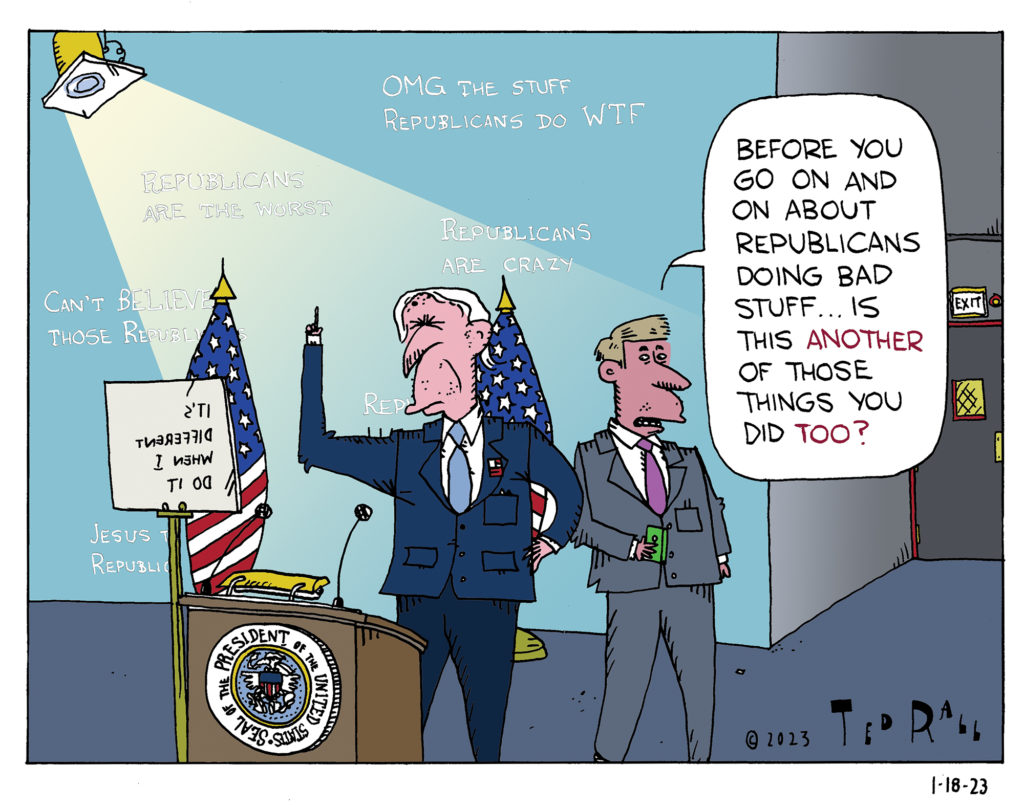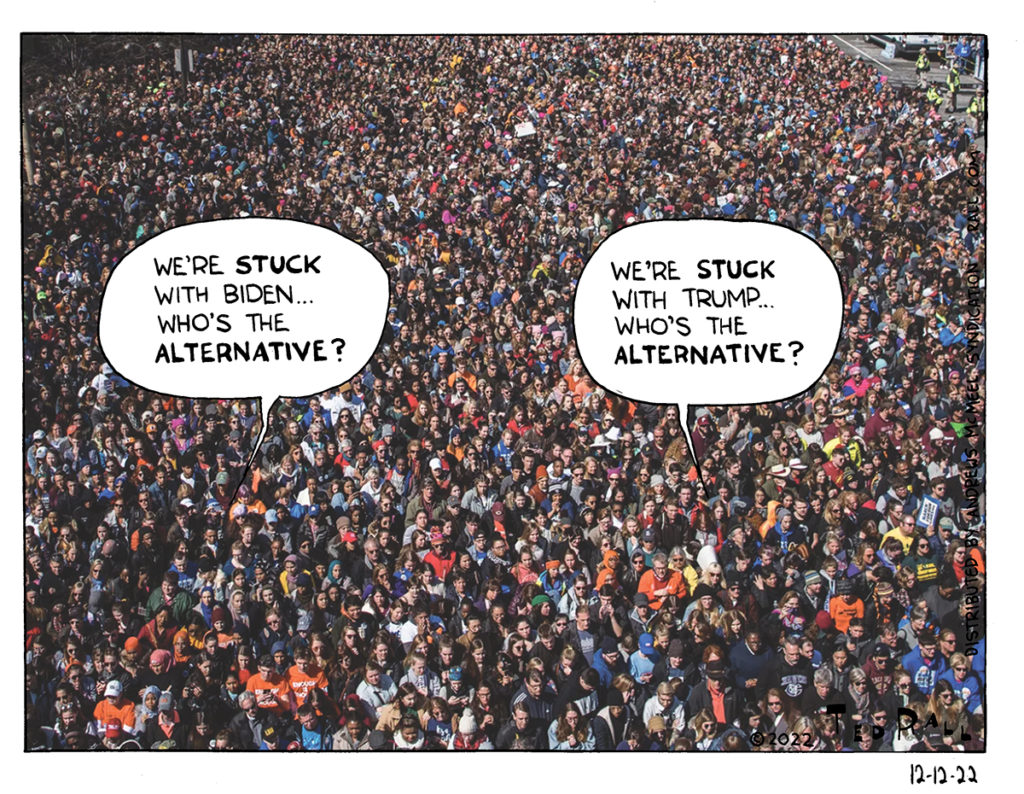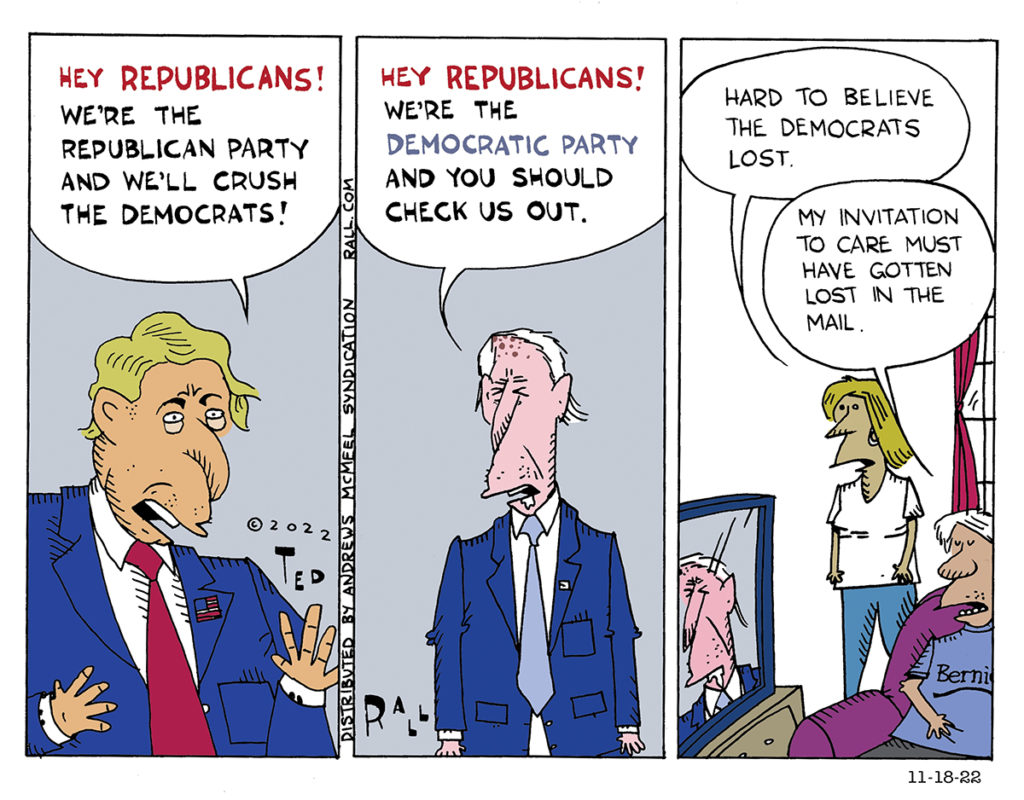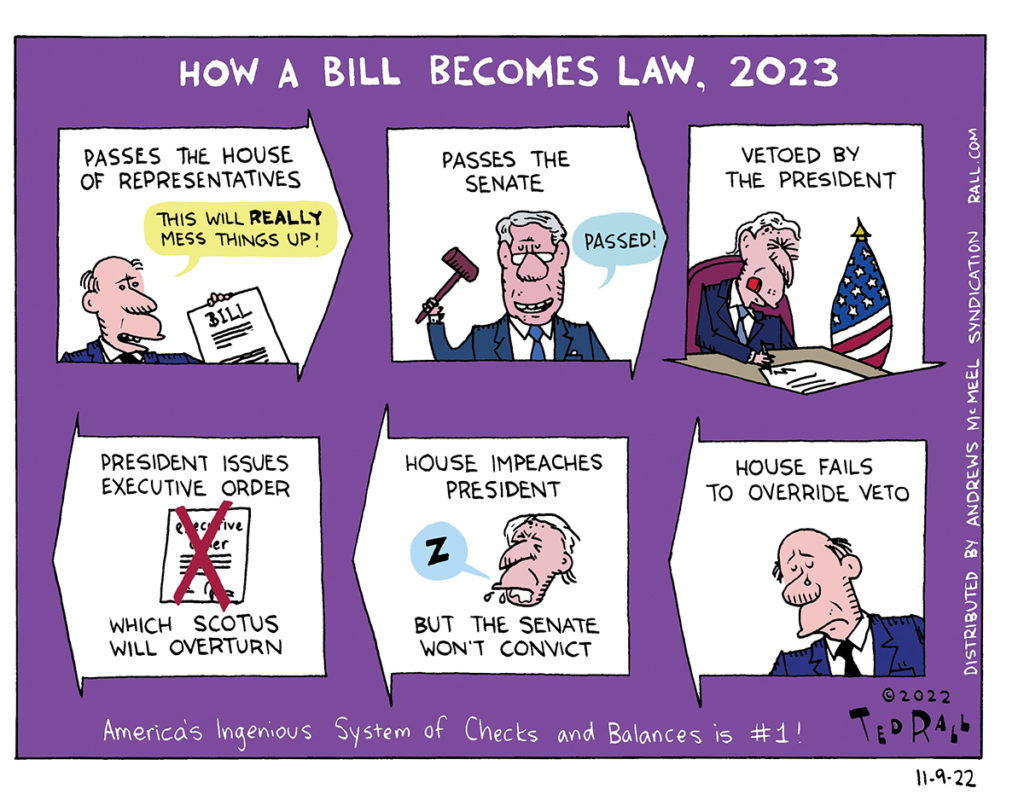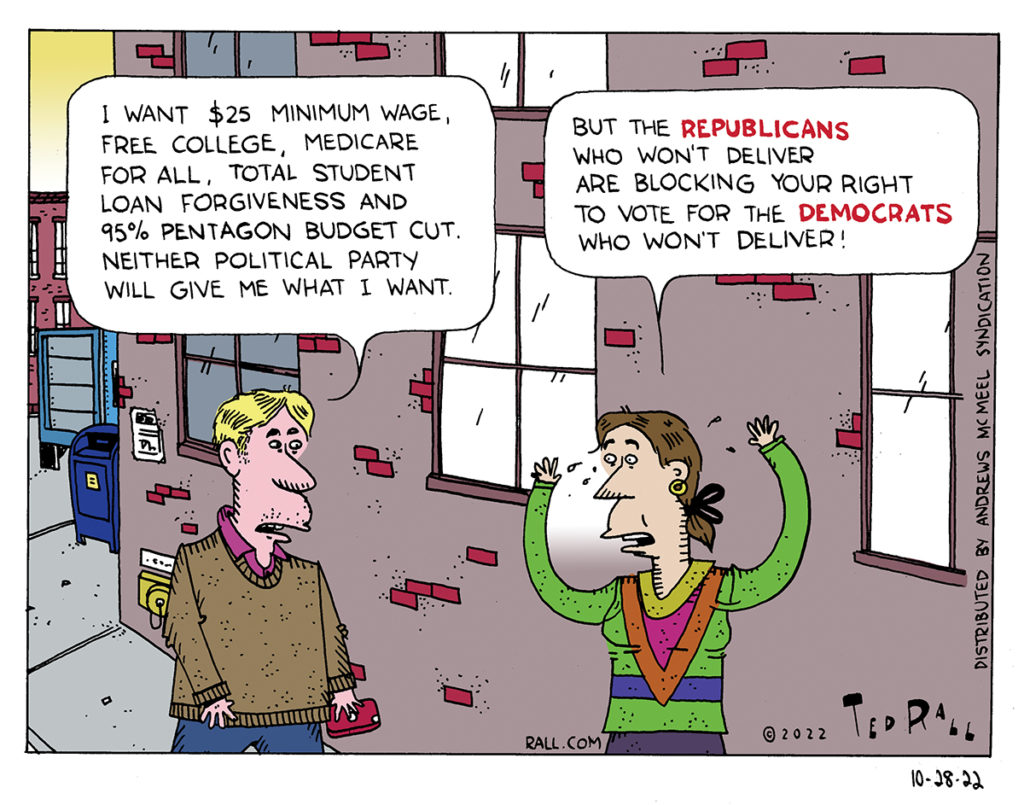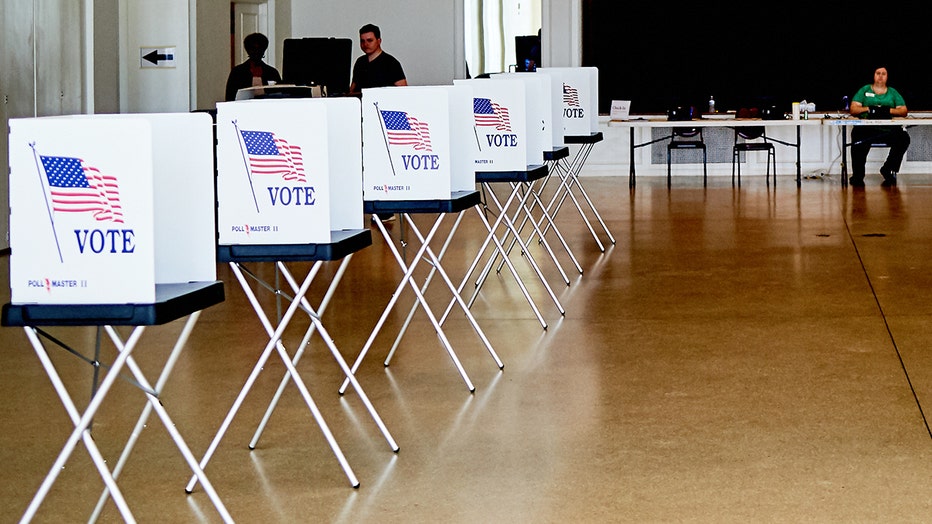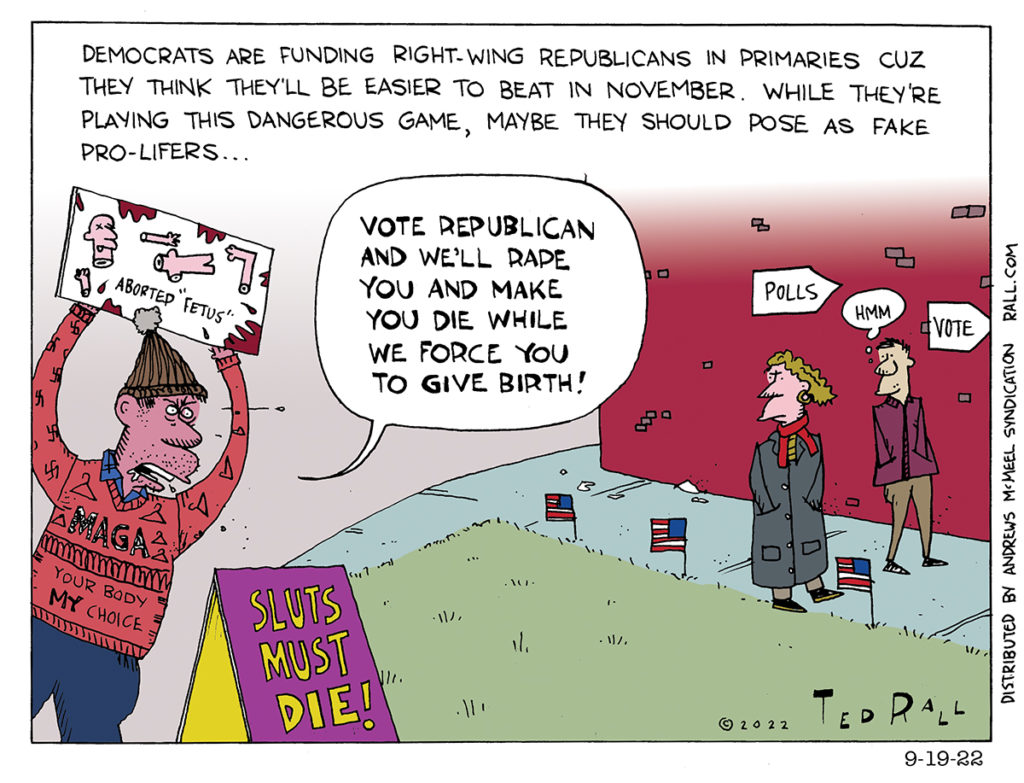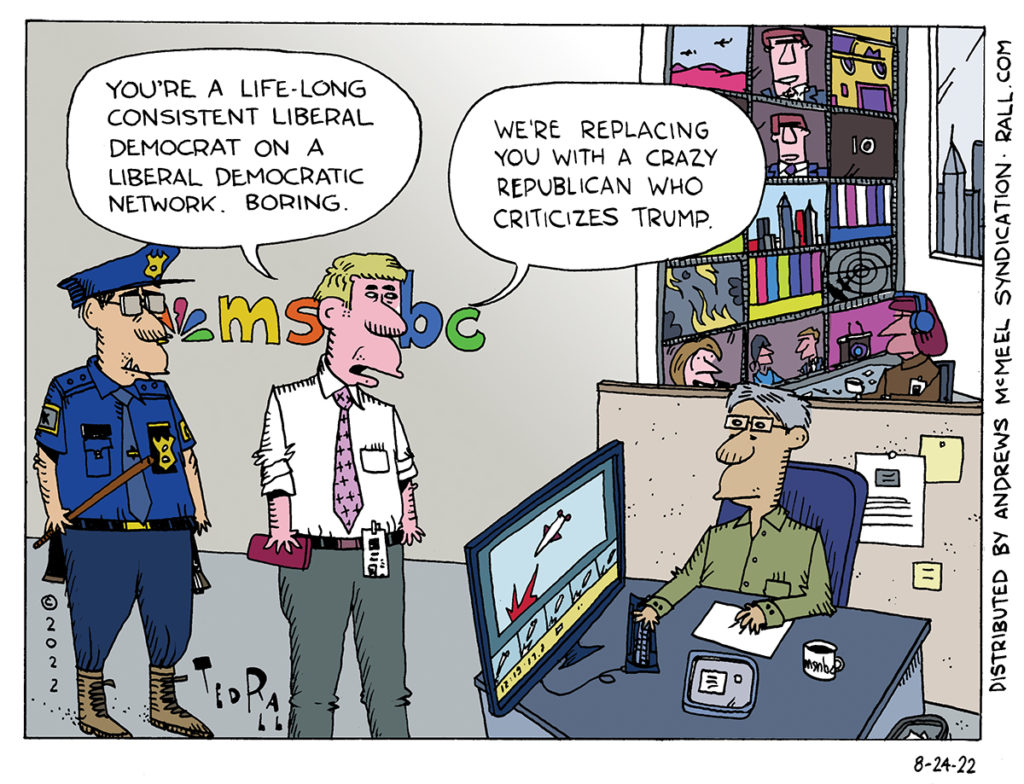Internationally-syndicated cartoonists Ted Rall (from the Left) and Scott Stantis (from the Right) discuss the week’s pressing issues. In Segment One they break down the banking crisis, weighing the causes of the Silicon Valley Bank and Signature failures and what the repercussions may be. (Ted also congratulates Scott on his warnings that the Federal Reserve Board was pushing its anti-inflation rate increases far too hard, with the bank failures being the early results of those policies.) Next, Scott and Ted get you up-to-date on the most recent events in Ukraine. Which raises the question: will Ted join the Republican Party because of its ever growing antiwar stance on the Russia-Ukrainian conflict? Lastly, the boys discuss the growing notion that reality is subjective since we all seem to subscribe to our own version of what is real. A far-reaching and incredibly interesting DMZ America Podcast.
If you liked the Audio version above, you may also enjoy the Video version of the DMZ America Podcast:
DMZ America Podcast Ep 92 Sec 1: Are SVB and Signature Bank Just the Beginning?
DMZ America Podcast Ep 92 Sec 2: When Did the GOP Become the Peace Party?
DMZ America Podcast Ep92 Sec 3: Things Seem Unreal Since Reality is Now Subjective

